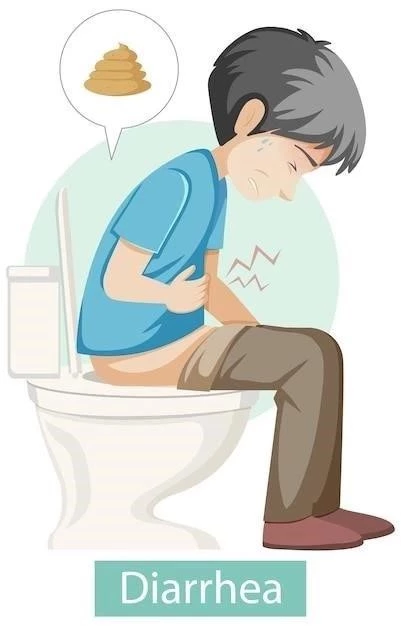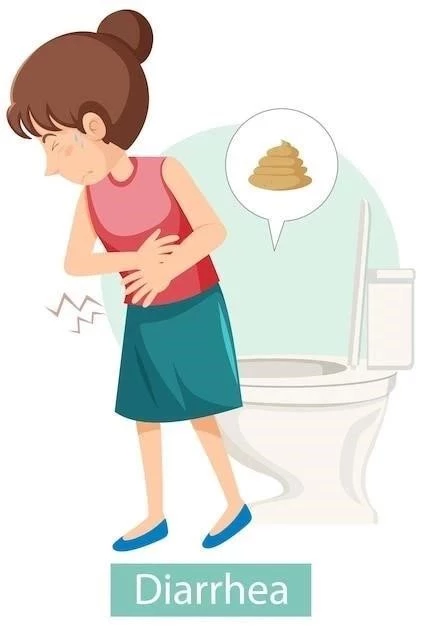Prednisone Constipation

Prednisone is a corticosteroid medication that is used to treat a variety of conditions, including inflammation, allergies, and autoimmune disorders. It is a powerful drug that can be effective in treating these conditions, but it can also have side effects, including constipation. Constipation is a common problem that can be caused by a variety of factors, including medications, diet, and lifestyle. It can be uncomfortable and can lead to other health problems, such as hemorrhoids and anal fissures. If you are taking prednisone and are experiencing constipation, there are a number of things you can do to relieve your symptoms.
What is Prednisone?
Prednisone is a corticosteroid medication that is used to treat a variety of conditions, including inflammation, allergies, and autoimmune disorders. It is a powerful drug that can be effective in treating these conditions, but it can also have side effects, including constipation.
Prednisone works by reducing inflammation in the body. It is often used to treat conditions such as asthma, rheumatoid arthritis, and lupus. Prednisone can also be used to treat short-term conditions, such as poison ivy rash or a severe allergic reaction.
Prednisone is available in both oral and injectable forms. The oral form is typically taken once or twice a day. The injectable form is typically given once or twice a week.
The dosage of prednisone will vary depending on the condition being treated and the individual patient. It is important to take prednisone exactly as prescribed by your doctor.
Prednisone can be an effective medication for treating a variety of conditions. However, it is important to be aware of the potential side effects, including constipation. If you are experiencing constipation while taking prednisone, talk to your doctor. There are a number of things that can be done to relieve your symptoms.
What is Constipation?
Constipation is a common problem that can be caused by a variety of factors, including medications, diet, and lifestyle. It is characterized by infrequent bowel movements, hard stools, and difficulty passing stools. Constipation can be uncomfortable and can lead to other health problems, such as hemorrhoids and anal fissures.
There are a number of different causes of constipation. Some of the most common causes include⁚
- Medications⁚ Certain medications, such as opioids, antidepressants, and calcium channel blockers, can cause constipation as a side effect.
- Diet⁚ A diet that is low in fiber can lead to constipation. Fiber is important for keeping stools soft and bulky, which makes them easier to pass.
- Lifestyle⁚ A sedentary lifestyle can also contribute to constipation. Exercise helps to stimulate the bowels and can help to prevent constipation.
Constipation can be treated with a variety of methods, including⁚
- Diet⁚ Eating a diet that is high in fiber can help to relieve constipation. Good sources of fiber include fruits, vegetables, and whole grains.
- Exercise⁚ Exercise can help to stimulate the bowels and can help to prevent constipation.
- Medication⁚ There are a number of different medications that can be used to treat constipation. These medications work by softening stools or by stimulating the bowels.
If you are experiencing constipation, it is important to talk to your doctor. Your doctor can help to determine the cause of your constipation and recommend the best treatment options.
Causes of Prednisone Constipation
Prednisone is a corticosteroid medication that is used to treat a variety of conditions, including inflammation, allergies, and autoimmune disorders. It is a powerful drug that can be effective in treating these conditions, but it can also have side effects, including constipation.
The exact cause of prednisone constipation is not fully understood. However, it is thought to be related to the way that prednisone affects the body. Prednisone can slow down the movement of food through the digestive tract. This can lead to constipation, as the stool has more time to harden and become difficult to pass.
In addition, prednisone can also cause the body to absorb more water from the stool. This can make the stool even harder and more difficult to pass.
Prednisone constipation is more likely to occur in people who are taking high doses of the medication or who are taking it for a long period of time. It is also more likely to occur in people who are elderly or who have other medical conditions, such as diabetes or kidney disease.
If you are experiencing constipation while taking prednisone, talk to your doctor. There are a number of things that can be done to relieve your symptoms, such as increasing your fluid intake, eating a diet that is high in fiber, and exercising regularly.
Risk Factors for Prednisone Constipation
Prednisone constipation is a common side effect of prednisone, a corticosteroid medication that is used to treat a variety of conditions, including inflammation, allergies, and autoimmune disorders. Constipation is more likely to occur in people who are taking high doses of prednisone or who are taking it for a long period of time. It is also more likely to occur in people who are elderly or who have other medical conditions, such as diabetes or kidney disease.
Other risk factors for prednisone constipation include⁚
- Being female
- Having a history of constipation
- Taking other medications that can cause constipation, such as opioids or calcium channel blockers
- Having a low-fiber diet
- Being sedentary
If you are at risk for prednisone constipation, talk to your doctor. There are a number of things that can be done to reduce your risk, such as increasing your fluid intake, eating a diet that is high in fiber, and exercising regularly.
Symptoms of Prednisone Constipation
Constipation is a common side effect of prednisone, a corticosteroid medication that is used to treat a variety of conditions, including inflammation, allergies, and autoimmune disorders. Symptoms of prednisone constipation can include⁚
- Infrequent bowel movements (less than three bowel movements per week)
- Hard, dry stools
- Difficulty passing stools
- Straining during bowel movements
- Abdominal pain and cramping
- Bloating
- Gas
In severe cases, prednisone constipation can lead to fecal impaction, which is a blockage of the rectum by hard, dry stools. This can be a serious condition that requires medical treatment.
If you are experiencing symptoms of prednisone constipation, talk to your doctor. There are a number of things that can be done to relieve your symptoms, such as increasing your fluid intake, eating a diet that is high in fiber, and exercising regularly.
Treatment for Prednisone Constipation
There are a number of different ways to treat prednisone constipation, including⁚
- Increasing your fluid intake. Drinking plenty of fluids helps to keep your stools soft and easy to pass. Aim to drink eight glasses of water per day.
- Eating a diet that is high in fiber. Fiber helps to add bulk to your stools, which makes them easier to pass. Good sources of fiber include fruits, vegetables, and whole grains.
- Exercising regularly. Exercise helps to stimulate the bowels and can help to prevent constipation.
- Taking a laxative. Laxatives can help to soften stools and make them easier to pass. However, it is important to use laxatives only as directed by your doctor, as they can have side effects.
If you are experiencing severe constipation, your doctor may recommend other treatments, such as⁚
- Enemas. Enemas are a type of irrigation that can be used to soften stools and make them easier to pass.
- Manual disimpaction. Manual disimpaction is a procedure in which a doctor manually removes impacted stool from the rectum.
It is important to talk to your doctor about the best treatment for your prednisone constipation.
Prevention of Prednisone Constipation
There are a number of things you can do to prevent prednisone constipation, including⁚
- Drink plenty of fluids. Aim to drink eight glasses of water per day. This will help to keep your stools soft and easy to pass.
- Eat a diet that is high in fiber. Fiber helps to add bulk to your stools, which makes them easier to pass. Good sources of fiber include fruits, vegetables, and whole grains.
- Exercise regularly. Exercise helps to stimulate the bowels and can help to prevent constipation.
- Talk to your doctor about taking a stool softener. Stool softeners can help to make stools softer and easier to pass. However, it is important to use stool softeners only as directed by your doctor, as they can have side effects.
If you are at risk for prednisone constipation, your doctor may recommend other preventive measures, such as⁚
- Taking a laxative. Laxatives can help to prevent constipation by softening stools and making them easier to pass. However, it is important to use laxatives only as directed by your doctor, as they can have side effects.
- Having a bowel movement at the same time each day. This will help to train your bowels to have a bowel movement at a regular time.
It is important to talk to your doctor about the best way to prevent prednisone constipation.
Side Effects of Prednisone
Prednisone is a corticosteroid medication that is used to treat a variety of conditions, including inflammation, allergies, and autoimmune disorders. It is a powerful drug that can be effective in treating these conditions, but it can also have side effects.
Some of the most common side effects of prednisone include⁚
- Increased appetite
- Weight gain
- Fluid retention
- High blood pressure
- Mood swings
- Acne
- Thinning skin
- Increased risk of infection
- Constipation
In rare cases, prednisone can cause more serious side effects, such as⁚
- Cushing’s syndrome
- Diabetes
- Osteoporosis
- Glaucoma
- Cataracts
It is important to talk to your doctor about the risks and benefits of prednisone before taking it.
Interactions of Prednisone
Prednisone can interact with a number of other medications, including⁚
- Anticoagulants⁚ Prednisone can increase the risk of bleeding when taken with anticoagulants, such as warfarin.
- Antidiabetic medications⁚ Prednisone can increase blood sugar levels, which can make it more difficult to control diabetes.
- Diuretics⁚ Prednisone can increase the risk of fluid retention when taken with diuretics.
- NSAIDs⁚ Prednisone can increase the risk of stomach bleeding when taken with NSAIDs, such as ibuprofen and naproxen.
- Other corticosteroids⁚ Taking prednisone with other corticosteroids can increase the risk of side effects.
It is important to tell your doctor about all of the medications you are taking, including over-the-counter medications and supplements. This will help your doctor to determine if prednisone is safe for you to take.

Warnings for Prednisone
Prednisone is a powerful medication that can have serious side effects. It is important to talk to your doctor about the risks and benefits of prednisone before taking it.
Some of the most important warnings for prednisone include⁚
- Prednisone can suppress the immune system. This can make you more susceptible to infections.
- Prednisone can cause high blood pressure. If you have high blood pressure, your doctor will need to monitor your blood pressure closely while you are taking prednisone.
- Prednisone can cause fluid retention. This can lead to swelling in your hands, feet, and ankles.
- Prednisone can cause weight gain. This is because prednisone can increase your appetite and cause you to retain water.
- Prednisone can cause mood swings. Prednisone can cause mood swings, such as irritability, anxiety, and depression.
It is important to talk to your doctor about all of the risks and benefits of prednisone before taking it.

Overdosage of Prednisone
An overdose of prednisone can be dangerous and can even be fatal. Symptoms of an overdose of prednisone can include⁚
- Nausea
- Vomiting
- Diarrhea
- Abdominal pain
- Headache
- Dizziness
- Confusion
- Seizures
- Coma
If you think that you or someone else has overdosed on prednisone, call 911 immediately.
Missed Dose of Prednisone
If you miss a dose of prednisone, take it as soon as you remember. However, if it is almost time for your next dose, skip the missed dose and take your next dose at the regular time. Do not take two doses at the same time.
It is important to take prednisone exactly as prescribed by your doctor. Do not stop taking prednisone without talking to your doctor first. Stopping prednisone suddenly can cause serious side effects.
Storage of Prednisone
Prednisone should be stored at room temperature, away from heat and moisture. Do not store prednisone in the bathroom. Keep prednisone out of the reach of children and pets.
Prednisone tablets can be stored in their original container or in a tight, light-resistant container. Prednisone liquid can be stored in its original container or in a tight, light-resistant container.
Do not freeze prednisone.
Alternative Treatments for Conditions Treated with Prednisone
There are a number of alternative treatments for conditions that are typically treated with prednisone. These treatments include⁚
- Lifestyle changes⁚ Making healthy lifestyle changes, such as eating a healthy diet, exercising regularly, and getting enough sleep, can help to improve symptoms of many conditions that are typically treated with prednisone.
- Natural remedies⁚ Some natural remedies, such as turmeric, ginger, and boswellia, have anti-inflammatory properties that may help to improve symptoms of some conditions that are typically treated with prednisone.
- Acupuncture⁚ Acupuncture is a traditional Chinese medicine technique that involves inserting thin needles into the skin at specific points on the body. Acupuncture may help to reduce inflammation and pain, and it may also help to improve sleep and mood.
- Massage therapy⁚ Massage therapy can help to reduce stress and tension, and it may also help to improve circulation and reduce pain.
It is important to talk to your doctor before starting any alternative treatments for a condition that is typically treated with prednisone. Some alternative treatments may interact with prednisone or other medications you are taking.
When to See a Doctor
You should see a doctor if you experience any of the following symptoms while taking prednisone⁚
- Severe constipation
- Abdominal pain
- Nausea
- Vomiting
- Diarrhea
- Blood in your stool
- Fever
- Chills
- Rash
- Hives
- Swelling of your face, tongue, or throat
- Difficulty breathing
These symptoms could be a sign of a serious side effect of prednisone.
Prednisone is a powerful medication that can be effective in treating a variety of conditions. However, it is important to be aware of the potential side effects of prednisone, including constipation.
If you are experiencing constipation while taking prednisone, there are a number of things you can do to relieve your symptoms. These include increasing your fluid intake, eating a diet that is high in fiber, and exercising regularly. If your symptoms are severe, your doctor may recommend other treatments, such as laxatives or enemas.
It is important to talk to your doctor about the best way to manage prednisone constipation.